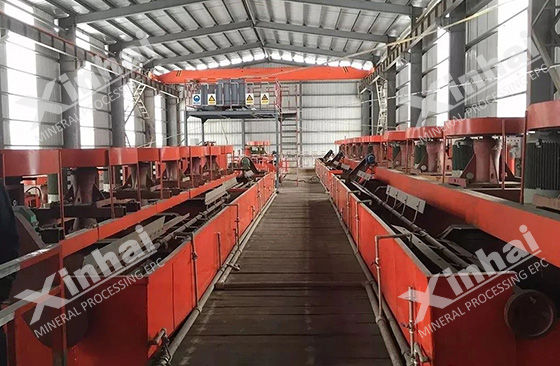
Most copper dressing plants are always nagged by the low copper recovery rate. In the usual mineral processing plant, the recovery rate and quality cannot be satisfied at the same time. Throughout the concentrator's operations, some copper impurities cannot be completely removed, nor can they be completely dissociated. If this part of the ore is recovered, the grade of the copper concentrate will be reduced. However, if it is thrown away, copper ore recovery rate will be reduced. If dressing plants not only want a higher recovery rate but a higher quality, they must choose right copper processing solution.

A good example of getting a higher recovery copper rate is Jiangxi Dexing copper dressing plant. The copper in Jiangxi is characterized by large-scale reserves, the low grade of raw ore and good optional. From the process to equipment selection, this plant is called as the most comprehensive and representative of the processing plant in China currently. The plant put into production in commission in the earlier times and set up by stages. Its recycling and economic benefits are more reasonable. In the early stage of mine construction, because of its technical limitations, there was a deficiency in a recovery rate of beneficiation of copper ore. So far, it has become a high recovery rate plant whose recovery rate of copper attached to 85% and grade to 24%.
Xinhai can provide you high-quality equipment and best dressing flow and guarantee you set up an optimal beneficiation indexes and the lowest cost plant.
To find out more about our products and solutions, please fill out the form below and one of our experts will get back to you shortly.